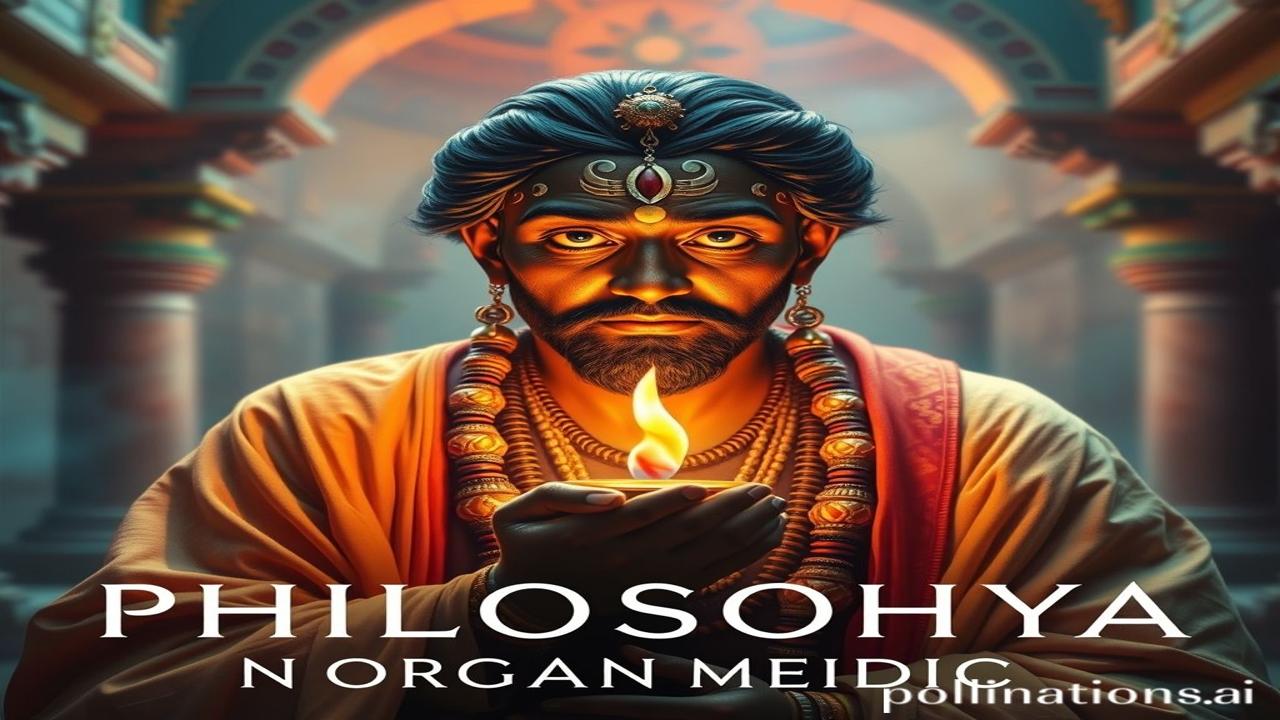Waqt Ki Dastaan: Healing Through the Ages – Unveiling the Philosophy of Medicine in Ancient India
Kabhi socha hai, bhaiya, ki jo Ayurveda hum aaj follow karte hain, uski roots kitni gehri hain? Imagine, thousands of years ago, when there were no stethoscopes, no MRIs, only the wisdom of the Rishis and the healing power of nature. Let’s take a trip down memory lane, through the dusty pages of history, to discover the fascinating philosophy of medicine in ancient India. Woh zamana, jab shifa sirf ek ilaaj nahi, balki jeevan ka ek tareeka thi.
Ayurveda: More Than Just Medicine – A Holistic Approach
So, what exactly are we talking about when we say “philosophy of medicine” in ancient India? Simply put, it’s the underlying principles and beliefs that guided the healing practices of the time. This wasn’t just about treating symptoms; it was about understanding the whole person – body, mind, and spirit. Ayurveda, the “science of life,” was the dominant medical system, and its philosophy was deeply rooted in the principles of balance, harmony, and understanding the individual’s unique constitution or Prakriti.
This philosophy originated in India, around 5000 years ago. We find evidence of it in the Vedas, particularly the Atharvaveda, and later in classical texts like the Charaka Samhita and the Sushruta Samhita. Why is this important? Because Ayurveda isn’t just some ancient relic. Its principles continue to influence modern medicine, wellness practices, and our understanding of holistic health. It’s a dharohar (heritage) that’s still alive and kicking.
From King Ashoka to Village Vaidyas: A Tapestry of Healers
Imagine a scene from ancient India. King Ashoka, after witnessing the horrors of war, embraces Buddhism and champions the cause of public health. He establishes hospitals for humans and animals, plants medicinal herbs, and encourages the spread of Ayurvedic knowledge. Then, picture a humble village vaidya (physician), meticulously grinding herbs with a mortar and pestle, diagnosing ailments by feeling the pulse, and counseling patients on diet and lifestyle.
Ma Rukmini might be seeking relief from joint pain, consulting the vaidya for a herbal remedy and dietary advice. A warrior, injured in battle, might be treated with Sushruta’s advanced surgical techniques, including plastic surgery procedures! The air smells of burning incense, fragrant herbs, and freshly cooked food prepared according to Ayurvedic principles. The sounds of chanting fill the air, emphasizing the spiritual dimension of healing.
The vaidyas didn’t just prescribe medicine; they were counselors, guides, and spiritual advisors. They understood that illness was often a result of imbalances in the doshas (Vata, Pitta, Kapha) and that restoring balance required a holistic approach.
Ayurveda Today: A Modern Renaissance of Ancient Wisdom
Even today, the philosophy of ancient Indian medicine resonates throughout India. From yoga and meditation to Ayurvedic spas and herbal remedies, we see its influence everywhere. The principles of Ayurveda are ingrained in our lifestyle, our understanding of food as medicine, and our emphasis on preventive care. It’s a key part of Bharatiyata (Indianness), connecting us to our cultural roots and shaping our approach to health and well-being. When you do yoga, you’re unconsciously aligning with these ancient ideas.
Fun Fact: Surgery in Ancient India?!
Log samajhte hain ki surgery toh modern invention hai… lekin asli sach yeh hai that Sushruta, often called the “father of surgery,” performed complex surgical procedures in ancient India, including cataract surgery, plastic surgery, and even brain surgery! He also described over 120 surgical instruments and detailed surgical techniques in his Sushruta Samhita. Imagine that!
Feel the Past: A Temple of Healing
Close your eyes. You are standing in an ancient Ayurvedic healing center, perhaps attached to a temple. The walls, built of red sandstone, are cool to the touch. The air is thick with the scent of sandalwood and burning ghee lamps. You hear the gentle chanting of mantras and the rhythmic sound of grinding herbs. You feel a sense of peace and tranquility, a reminder that healing is not just a physical process, but a spiritual journey.
The Timeless Wisdom
The philosophy of medicine in ancient India reminds us that true healing comes from understanding the interconnectedness of body, mind, and spirit. It emphasizes the importance of living in harmony with nature, balancing our doshas, and nurturing our overall well-being. It’s a timeless wisdom that continues to guide us towards a healthier and more fulfilling life.
” सर्वे भवन्तु सुखिनः, सर्वे सन्तु निरामयाः “ (Sarve bhavantu sukhinah, sarve santu niramayah) – May all be happy, may all be free from illness. This ancient Sanskrit verse encapsulates the core philosophy of medicine in ancient India: a wish for the well-being of all. And that, my friends, is a legacy worth preserving.
